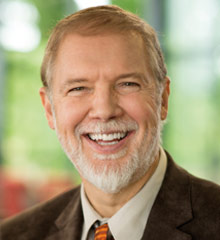Introductory Issues in 1 John
Antichrists
John calls those Christian leaders who oppose his teachings “antichrists” (2:18, 22; 4:3). In Greek, this refers to someone who puts themself “in the place of” Christ, not someone opposed to him. This expression should not be confused with the beast described in Revelation 13, whom some interpreters refer to as the Antichrist. John’s point is that certain teachings are the enemy of the truth of Christ and the Spirit of truth. The label “antichrist” speaks of the serious danger that John believes these false teachings pose for communities of believers.
Faith and good works
John claims a very strong relationship between knowing God, loving God, and doing good works such as keeping the commandments and walking in the light. Many Christians nevertheless have trouble with simply stating, “The love of God is this, that we obey his commandments” (5:3), without further qualification.
Nature and content of the false teachings
The exact nature and content of the false teachings that this letter opposes continue to attract scholarly debate. A popular theory is that the heresyHeresy is a belief or set of beliefs and actions contrary to those accepted by the Christian church. Gnostic thought is one example of an heretical belief. More was a very early form of gnostic Christianity. The gnostics were important and influential heretics during the second and third centuries CE. Among other things, many gnostic teachings denied that Jesus had a body like ours. They also dismissed the realities of life in the world, claiming salvationSalvation can mean saved from something (deliverance) or for something (redemption). Paul preached that salvation comes through the death of Christ on the cross which redeemed sinners from death and for a grace-filled life. More as a purely spiritual existence.
Relationship with John’s Gospel
This book contains language and themes that are very similar to what is in the Fourth Gospel. It may have been written by the same person or group of people who wrote or edited John’s Gospel. It almost certainly comes from a community for whom John’s Gospel had considerable influence because of the language, theology, and themes shared by both books. At the same time, there are new and different points or problems developed in 1 John, distinguishing it from the Gospel of John. One of these is deep concern about the presence of false teachers in the church.
Antichrists
John calls those Christian leaders who oppose his teachings “antichrists” (2:18, 22; 4:3). In Greek, this refers to someone who puts themself “in the place of” Christ, not someone opposed to him. This expression should not be confused with the beast described in Revelation 13, whom some interpreters refer to as the Antichrist. John’s point is that certain teachings are the enemy of the truth of Christ and the Spirit of truth. The label “antichrist” speaks of the serious danger that John believes these false teachings pose for communities of believers.
Faith and good works
John claims a very strong relationship between knowing God, loving God, and doing good works such as keeping the commandments and walking in the light. Many Christians nevertheless have trouble with simply stating, “The love of God is this, that we obey his commandments” (5:3), without further qualification.
Nature and content of the false teachings
The exact nature and content of the false teachings that this letter opposes continue to attract scholarly debate. A popular theory is that the heresy was a very early form of gnostic Christianity. The gnostics were important and influential heretics during the second and third centuries CE. Among other things, many gnostic teachings denied that Jesus had a body like ours. They also dismissed the realities of life in the world, claiming salvation as a purely spiritual existence.
Relationship with John’s Gospel
This book contains language and themes that are very similar to what is in the Fourth Gospel. It may have been written by the same person or group of people who wrote or edited John’s Gospel. It almost certainly comes from a community for whom John’s Gospel had considerable influence because of the language, theology, and themes shared by both books. At the same time, there are new and different points or problems developed in 1 John, distinguishing it from the Gospel of John. One of these is deep concern about the presence of false teachers in the church.






